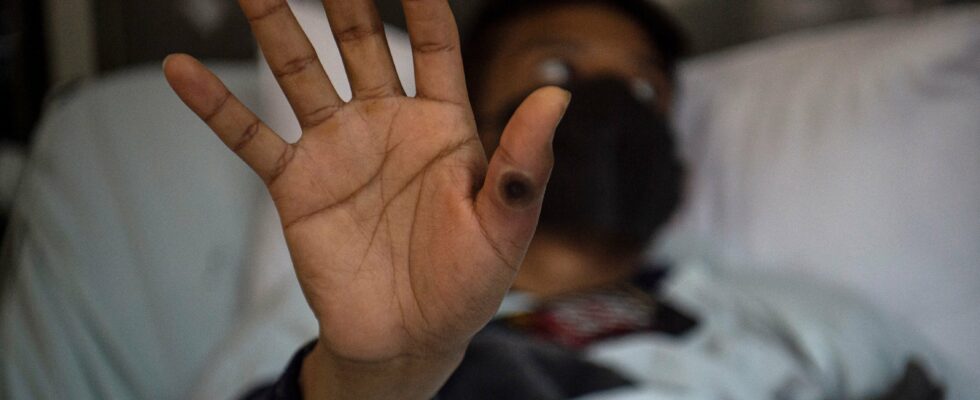Feeling like déjà vu? This week, the first cases of Mpox were reported outside Africa, in Sweden and Pakistan. The discovery of a new variant – more transmissible and more serious – prompted the World Health Organization (WHO) to declare a public health emergency of international concern on Wednesday, August 14, the highest level of alarm. A decision that the WHO had already taken in 2022 when an Mpox epidemic spread across the world. At the time, this viral disease was still called “monkeypox”. Why did it change its name?
Let’s first go back to the origins of its first name. “The disease was first identified in monkey colonies maintained for research in 1958,” the WHO says on his siteAt the time, these laboratory animals presented skin lesions reminiscent of human smallpox, details Pasteur Institute. In the 1970s, the disease was first detected in humans in the Democratic Republic of Congo and was given the name “monkey pox”. But in real life, it is usually caught from rodents. In other words: the name is misleading, because the virus has nothing to do with monkeys.
During the 2022 epidemic, which affected around forty countries, the name “monkeypox” gave rise to stigmatizing remarks for African countries. “Monkeys are generally associated with countries in the South, particularly Africa”, recall on the site The Conversation researcher Moses John Bockarie adds: “There is a long and dark history of black people being compared to monkeys. No disease nomenclature should be a trigger for that.”
In June 2022, Moses John Bockarie was one of thirty scientists, many from Africa, who signed a platform to ask for these names to be changed, considering it urgent to put in place “a nomenclature that is neither discriminatory nor stigmatizing”. The aim: to avoid pointing the finger at individuals or even an entire continent.
Do not stigmatize the African continent
More generally, Africa is frequently targeted as the source of diseases that have spread throughout the world. “We saw this especially with AIDS in the 1980s, Ebola during the 2013 epidemic, then with Covid and the supposed South African variants,” epidemiologist Oliver Restif told AFP. It should be noted that the WHO recommends avoiding the names of animals or geographical regions for viruses and diseases. In June 2022, the health institution is therefore considering “changing the name of the virus”. On its site, WHO says it has identified “messages that stigmatize certain groups of people around this smallpox outbreak. We want to make it very clear that this is not correct.”
A month later, the New York City government drove the point home: it asked the highest health institution to rename the disease in order to improve patient care. Indeed, the stigmatizing name risked pushing them to isolate themselves rather than encouraging them to seek care. According to the city’s health commissioner, Ashwin Vasan, this “terminology” is also “rooted in a racist and painful history for communities of color.”
For its part, the WHO then set about finding a new name. To do this, it spoke with several experts within various advisory bodies at the medical and scientific levels, as well as classification and statistics committees from 45 countries before finally making a decision. A few months later, “monkeypox” became “Mpox”, an abbreviation of the English name of the disease. monkeypoxas the WHO specified in a press release dated November 2022. From that date, the institution adopted the term Mpox in its communications “in order to minimize any permanent negative impact of the current name and the adoption of the new name”. If its name has therefore evolved, the disease is still there.
